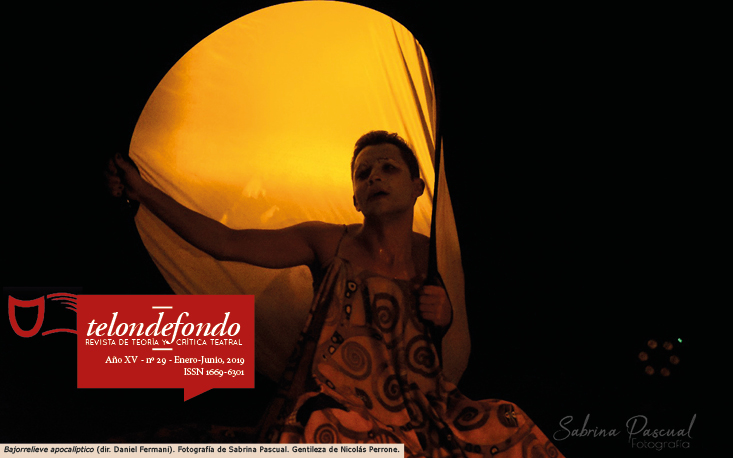The Katak by Spregelburd and the Triumph of a Speech without Language
Abstract
The paper analyzes Rafael Spregelburd´s La Terquedad (The Stubbornness) based on an interpretation of the notion of stubbornness as Planc’s nonsense of stubbornly pursuiting sense through the invention of an artificial, numerical and universal language that cancels the differences, supported on the protagonist’s desire to give back to men that primitive faculty that God once gave them of a speech without language. Our investigation is based on an analysis of the temporal organization of facts in the play’s plot, which begins and ends with the primitive man, with the negation of language; even of the artificial one invented by Planc: that numerical alphabet proposed as a solution to the capricious multiplication of its own words carried out by each language. We understand that the play rests on a circular structuring of the fable that reproduces the stubbornness of the protagonist and helps to highlight a notion of language without relation to the world, a language turned on itself.Downloads
Los autores/as que publiquen en esta revista aceptan las siguientes condiciones:
-
Los autores/as [traductores] conservan los derechos de autor y ceden a la revista el derecho de la primera publicación, con el trabajo registrado con Licencia Creative Commons Atribución-NoComercial-CompartirIgual 4.0 Internacional, que permite a terceros utilizar lo publicado siempre que mencionen la autoría del trabajo y a la primera publicación en esta revista.
-
Los autores/as pueden realizar otros acuerdos contractuales independientes y adicionales para la distribución no exclusiva de la versión del artículo publicado en esta revista (p. ej., incluirlo en un repositorio institucional o publicarlo en un libro) siempre que indiquen claramente que el trabajo se publicó por primera vez en esta revista.
-
Se permite y recomienda a los autores/as a publicar su trabajo en Internet (por ejemplo en páginas institucionales o personales).











